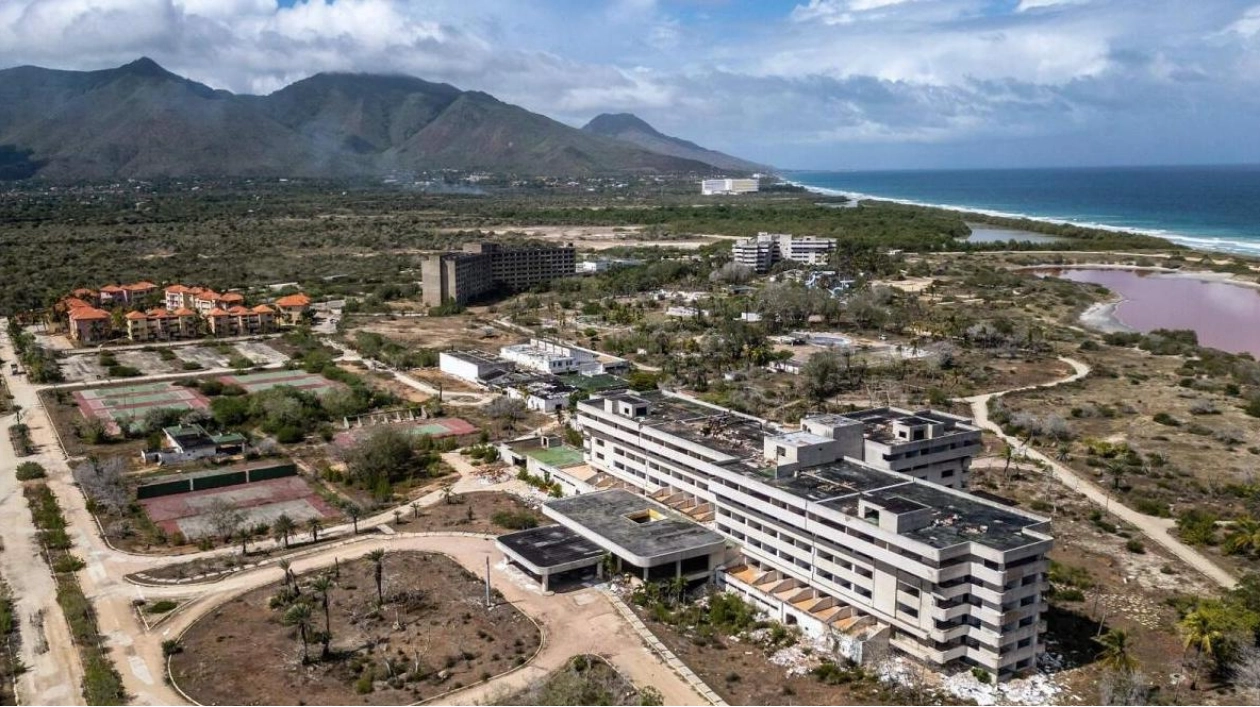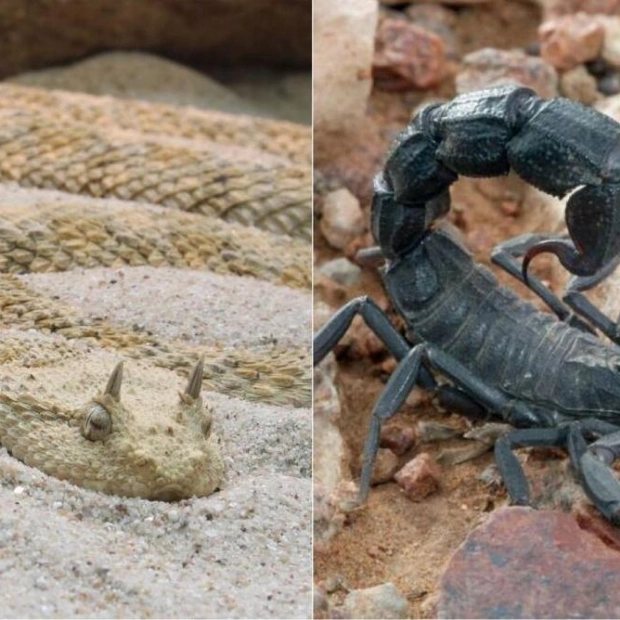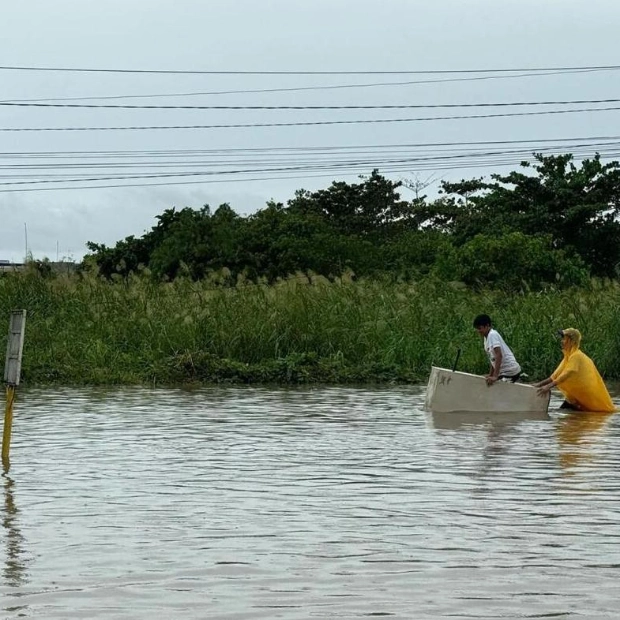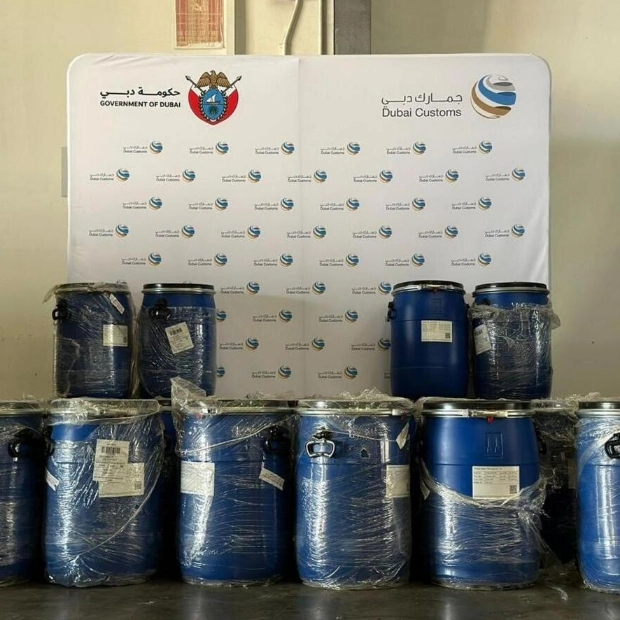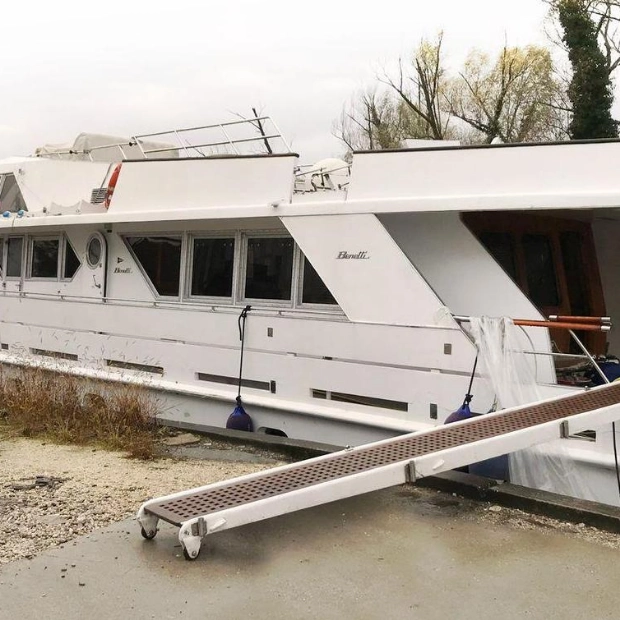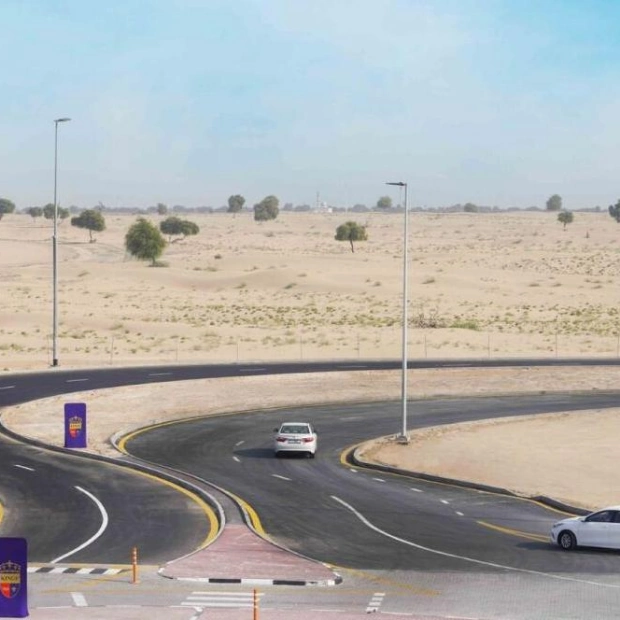Abandoned hotel on Margarita Island, Venezuela, photographed from the air on November 26. Once a Caribbean gem, Margarita Island has seen its fortunes dwindle due to years of economic turmoil, inflation, a pandemic, and the breakdown of public services. AFP
One of the five stars that once graced the facade of the Margarita hotel on this Venezuelan island has fallen off. No guests are around to notice. The hotel stands abandoned, its peeling exterior a stark symbol of the island's decline from its former glory as the 'Pearl of the Caribbean.' A short drive away, a herd of cows grazes in front of another deserted five-star hotel, Lagunamar. The scene resembles a post-earthquake disaster, with a torn-off poolside pavilion roof, scattered lamps and toilets, and piles of rubble. In reality, the damage is the handiwork of vandals, who loot scrap metal for resale or to build shacks. Margarita, a significant source of pearls in the 15th and 16th centuries, was once a hotspot for American tourists, lured by its palm-fringed beaches and turquoise waters. However, Venezuela's economic collapse, high crime rates, and international isolation following disputed elections have taken their toll on the island's 500,000 residents.
Men sit on the street during a power outage in the Las Maritas neighborhood on Margarita Island, Nueva Esparta State, Venezuela, on November 24. AFP
The signs of decline are pervasive. Several clothing and souvenir shops along the main shopping street, Santiago Marino, are empty. Power outages are frequent, exacerbated by a recent explosion at a gas facility in the neighboring state of Monagas, leading to blackouts lasting up to 20 hours. 'This is not the Margarita of the past,' says Jose Padobani, a 26-year-old bartender. An 80% drop in GDP over a decade under the increasingly authoritarian rule of President Nicolas Maduro from 2013 to 2023 has driven over seven million Venezuelans—nearly a quarter of the population—to seek better lives elsewhere. Many hoped to return after the July 2024 elections, which polls suggested the opposition would easily win. But those hopes were dashed when Maduro claimed victory, despite opposition results showing a landslide win for Edmundo Gonzalez Urrutia.
'All my friends have left, but I don't want to,' says Juan Caiman, a 44-year-old furniture maker whose Colombian father immigrated to Venezuela in the 1980s to escape Pablo Escobar's violence. Caiman, who crafts luxury furniture near the abandoned Margarita hotel, is among a group of business owners determined to stay. Fadwa Hage, 55, owner of a sports shop on Santiago Marino, says those who remain do so to protect their businesses from looting. She also sees tentative signs of recovery. 'This year, three new businesses have opened on this block alone,' she notes. 'We have beaches, mountains, and many activities for investment. This island is unique!'
In the absence of Western tourists, the government has launched campaigns to attract visitors from Venezuela's allies Russia, Cuba, and Poland. Official figures show that 40,000 Russians have visited Margarita since 2023, drawn by all-inclusive packages, including unlimited alcohol, in hotels with generators that maintain power and air conditioning. Signs around the island welcome visitors in Russian, Turkish, Polish, and Chinese, and kite-surfing lessons are offered in those languages. However, many islanders complain they are not benefiting from the new revenue streams. 'We depend on Venezuelan tourists because Russian tourists don't spend,' says Demetria, a masseuse who has offered treatments on the beach for 16 years. Peter, a 44-year-old Russian IT specialist on his first visit to Venezuela this year, was surprised to find hotels, shops, and restaurants abandoned. 'It's as if they were built for ten times more tourists,' he said.
In the low-income neighborhood of Las Maritas, Crismar Lopez uses two candles and her cellphone flashlight to light the kitchen where she makes hot dogs to sell on the street for $1.50 a pair. Recent power cuts forced Lopez and her husband to close for two weeks due to the inability to refrigerate food. But the 47-year-old mother of three is accustomed to making do. 'Venezuelans are masters in the art of coping,' she says.
Source link: https://www.khaleejtimes.com
